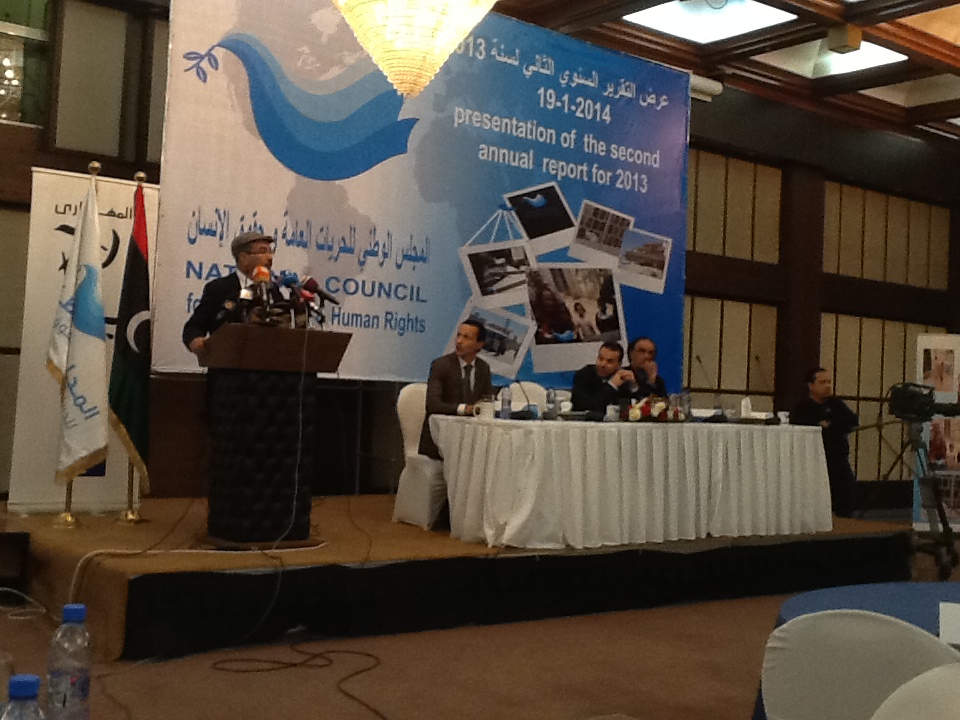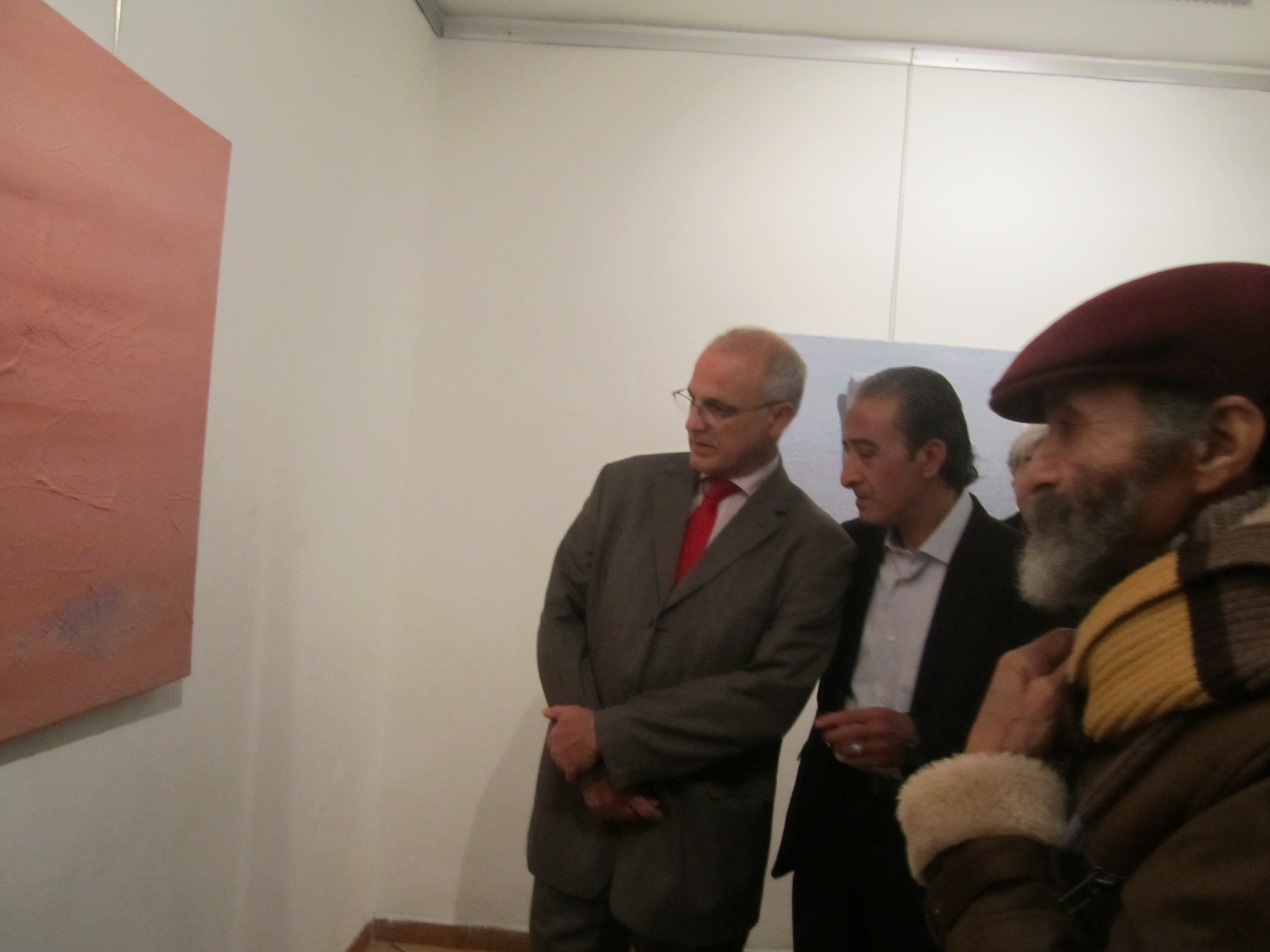By Callum Paton.

Tripoli, 20 January 2014:
The National Council for Civil Liberties and Human Rights (NCCLHR) has attacked the government and Congress . . .[restrict]saying that their fundamental failures are proving one of the most serious obstacles to the advancement of human rights in the country.
“How can a government insufficiently strong to protect its own members protect the state in general?”, asked Waleed Kawaan, the Executive Director of NCCLHR. “It has become a failure in this crucial area.” He added that instead of simply observing and discussing, the government needed to “enact actual plans which are true representation of the aspirations of the Libyan people rather than being subject to outside pressures”.
During a press conference for the release of the NCCLHR’s most recent report, the human rights organisation discussed at length the various shortcomings of the government and the refusal of many of its ministries to cooperate with the organisation. NCCLHR was most critical of the government’s failure to rein in what it called unaccountable armed groups operating nominally under the control of state institutions.
“It has become clear that the state is unable to control the proliferation of weapons and impose the sovereignty of law,” said Kawaan. “There are armed groups in this country to which the government has lent its legitimacy but which do not listen to the government.” He added that basic freedoms and civil society could only be ensured once a strong state had been built up to protect them.
In its no-holds-barred report into human rights in Libya over the past six months the NCCLHR listed hundreds of human rights violations across the country in prisons, schools and hospitals, against the freedom of speech, against minorities and the disabled.
It reported torture, extra judicial executions and detentions in the 52 prisons it inspected in the latter half of 2013. It drew attention to crowded classrooms and poor school conditions affecting students’ right to education as wells a lack of modern equipment in neonatal units in public hospitals. It said that the government was not doing enough to provide basic international standards for the country’s 60,000 disabled people, adding that more also had to be done to combat the “inhuman conditions” in camps for internally displaced minorities.
Mohammed Allagi, the president of NCCLHR, opened the convention saying: “This is an institution which can be relied on and which has succeeded over the course of the last two to three years to stand on its own.” He praised the efforts of NCCLHR in its work on the report.
In attendance at the conference were the UAE Ambassador to Libya, representatives from the British Embassy, Sadat Elbadri, head Tripoli Local Council, Salam Al-Sheikhi, head of the League of Libyan Ulema, and Abdul Rahman Keesah, head of the Libyan Bar Association. [/restrict]








